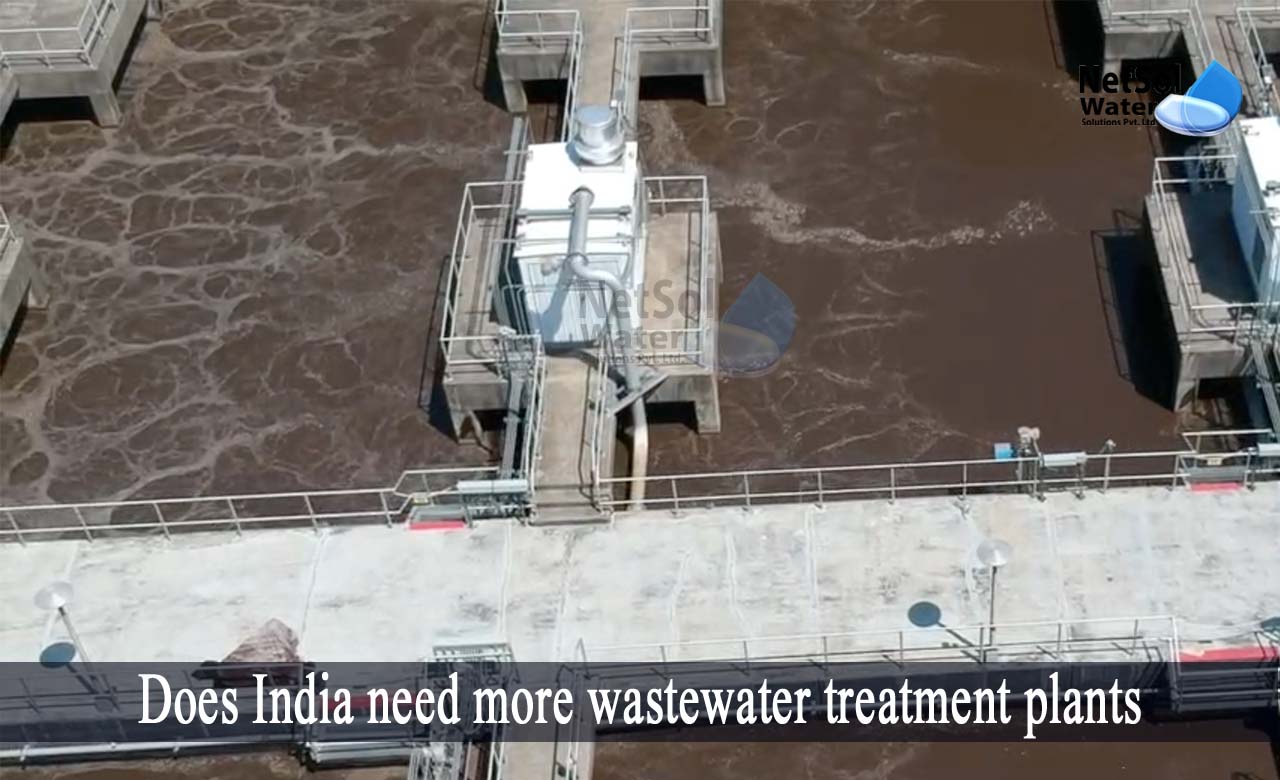Does India need more wastewater treatment plants?
One of the victims of India's rapid economic development has been the deterioration of our environment. Unfortunately, rapid industrialization has increased the number of pollutants in our environment, especially in water.
Wastewater management through wastewater treatment plants has become a need in India's cities today.
Sources of Wastewater
Sewerage and industrial wastewater are the two most common sources of water contamination. With India's population and industrial environment expanding at a breakneck pace, wastewater volume is also increasing at an alarming rate.
With the decreasing of freshwater sources such as rivers, wells, and groundwater, we have a worrisome situation. It has become a fear that water will soon become a valuable limited commodity.
Increase in the level of Wastewater
Rising wastewater levels have another ramification. Not only it is unsafe for human consumption, but it can also contaminate other water supplies. For example, toxic water seeps into rivers and pollutes them.
When contaminated water moves downstream and connects with other water sources, such as rivers, the contamination spreads. Additionally, wastewater leaks into the ground, damaging subsurface water supplies. As a result, practically every water source such as rivers and wells to coastal areas, is now badly polluted.
Consequences of growing wastewater levels
• Negative impact on the river and marine life
• Lack of drinking water
• Excess of some hazardous substances
• Negative impact on groundwater
• Pollution of soil
• An increase in chronic health issues caused by hazardous substances, such as lead and mercury in all living things
• Increased pollution in coastal areas
Importance of Wastewater Management
The importance of water is too great for us to take this problem lightly. All humans require water to survive. Water is essential for cattle, the food industry, and agriculture. Nature can deal with naturally occurring pollutants, such as human and animal waste to a limited extent.
However, today's vast amount of effluent cannot be controlled alone by nature, therefore, wastewater management by wastewater treatment plants is a must.
Processes in wastewater treatment plants to control the levels of wastewater
Physico-chemical treatment: Pollutants are normally categorized according to their size, and different approaches are employed to treat them. Larger particles, for example, are separated using gravity, flotation, or filtration. Smaller particles, on the other hand, are far more difficult to separate. This is when physicochemical treatment comes in handy.
To separate them, chemicals known as flocculants and coagulants are utilized. This is a standard approach for treating industrial waste. It is excellent at removing suspended materials, such as heavy metals, inorganic compounds, oil, and grease, as well as dissolved contaminants.
Biological Treatment: Unlike physicochemical techniques, biological treatment uses organisms to treat pollutants. Over the years, scientists have developed a number of aerobic and anaerobic wastewater treatment technologies.
Membrane-Based System: The membrane-based system is used to recycle wastewater in this method. Membrane bioreactors treat wastewater by combining the straightforward science of ultrafiltration with a bioreactor. In a nutshell, the strategy integrates physical and biological processes.
This technology is widely utilized in industrial and municipal wastewater control. Treated water is reused for a variety of applications, including irrigation.
Zero Liquid Discharge System: Many people consider the Zero Liquid Discharge System to be cutting-edge wastewater management technology. It distils water by removing all dissolved particles from wastewater. Water is purified using methods such as RO.
Conclusion
Wastewater management in India is the best solution for increasing wastewater. Because, decreasing toxins will need decades of focused effort, managing the wastewater would be a preferable approach. Fortunately, technology can assist us. We now have sophisticated wastewater treatment methods. The above-mentioned are some of the most prevalent wastewater treatment procedures utilized in India.
How can we assist?
Netsol Water provides a wide range of modern solutions, including water softener, wastewater treatment plant, sewage treatment plant, water treatment plant and much more. We also educate our clients on how to avoid pollution by taking a sustainable strategy, and utilizing advanced treatment methods.
Netsol Water is Greater Noida-based leading water & wastewater treatment plant manufacturer. We are industry's most demanding company based on client review and work quality. We are known as best commercial RO plant manufacturers, industrial RO plant manufacturer, sewage treatment plant manufacturer, Water Softener Plant Manufacturers and effluent treatment plant manufacturers. Apart from this 24x7 customer support is our USP. Call on +91-9650608473, or write us at enquiry@netsolwater.com for any support, inquiry or product-purchase related query.



